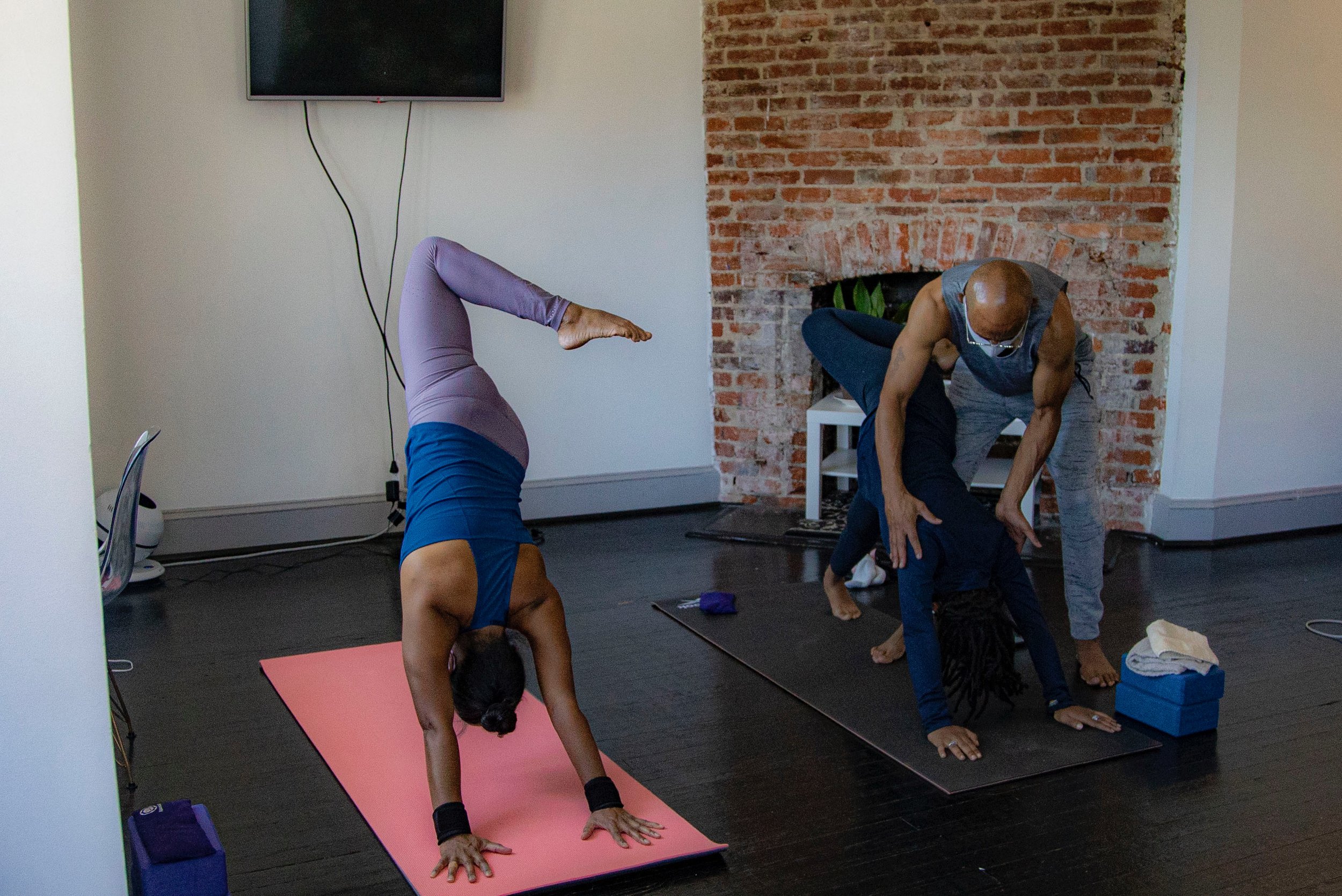Our Services
For Everyone
We offer high-quality yoga classes, support groups run by licensed mental health professionals, and peer support & case management in partnership with the George Washington University Human Services and Social Justice Department. These services are available to our members on a sliding fee scale.
For Pregnant Women
DC lags the nation on several counts of care of pregnant women. For example, our pregnancy-related mortality rate is 41.9 per 100,000 live births: Nationally, it is 29.1. 16.5% of infant deaths in DC are due to maternal complications of pregnancy: The national average is 6.5%.
Prenatal care ought to start from the first trimester, as acknowledged in DC Health’s new approach to addressing perinatal health disparities. Yet only two-thirds of live births here are to women who started prenatal care during the first trimester. Among non-Hispanic Black mothers, that fraction is just half; and among Hispanics, it is two-thirds. While it is four-fifths among non-Hispanic Whites, that is still short of 100%.
-
Pregnancy groups, like ours, ensure healthier pregnancies.
In these, expectant parents meet us and each other in a friendly group setting. They talk about their progress and problems, get advice, and learn to take good care of themselves, for example, through prenatal yoga.
Participants also offer each other social support. They get to know people on whom they can rely. They feel less alone.
Such groups lead to excellent results, like parents adopting healthful routines, fewer preterm births, fewer underweight babies, less need for intensive care during births, more screening for post-delivery depression, more breastfeeding, and longer gaps between pregnancies.
-
Our pre and postnatal classes are steeped in our philosophy of body and mind moving towards liberation. Reclaiming the body and settling the mind are our goals in these groups, as is support from one another and from the licensed psychologist who teaches the classes.
-
Individual therapeutic mentorship confronts the structures of oppression that are embedded in the mind and relational patterns through the development of a deeply caring relationship with a licensed mental health professional.
-
*Due to funding constraints, the fellowship is temporarily paused.
In each cohort, we offer one New Moms Fellowship to the person most in need in each group. The person who receives this fellowship receives a stipend to participate in yoga classes and individual therapeutic mentorship. The New Moms Fellow also participates in Circle of Security, a research-backed parenting course taught by a licensed clinician.
For Service Providers
Nervous systems are shared. So, simply spending time around traumatized people distresses us mentally and physically. Trauma “spins” our minds and shuts our mind-body connections.
A service provider—especially one working for marginalized, traumatized communities—deals with trauma all the time. Often, they are well-trained in treating traumatized nervous systems. They are less trained in re-regulating themselves after dealing with others’ trauma. Specifically, they hold trauma in their body but do not know how to get rid of it.
We train them to care for themselves through yoga. Yoga releases the trauma in their body, strengthens it, and calms their mind.
To take part in our yoga classes, service providers must commit to attending at least one class per week.
For LGBTQ+ Individuals
Advocacy and Positive Identity are our shields against discrimination. Finding community, even when it feels impossible to do, is central to this.
-
Our Queer POC two generational support group was started when we recognized a need in our community for young queer people to have consistent support and representative role models. We hold two modules of our two generational group: one affinity space for people of color and one mixed group per year.
The two generational model includes individuals in emerging adulthood and individuals over 40, so that the two groups can experience learned knowledge from one another.
We also recognize that within this population hate crimes survivors tend to be overrepresented.



